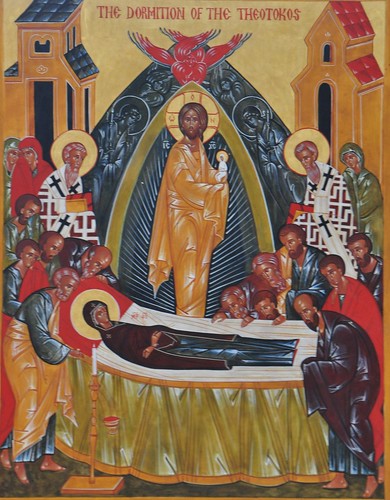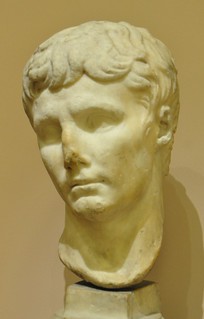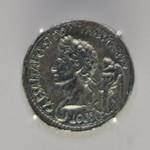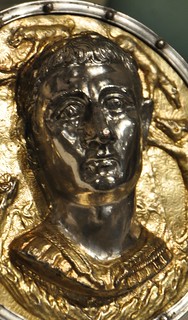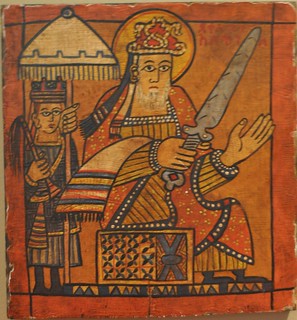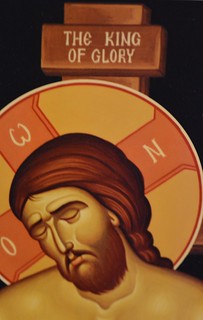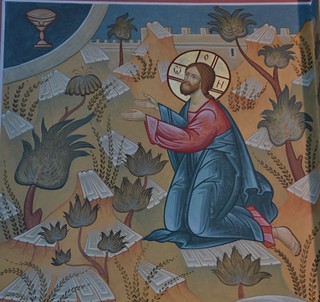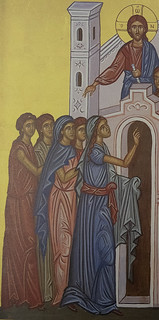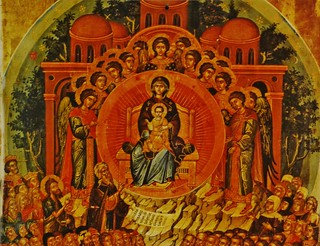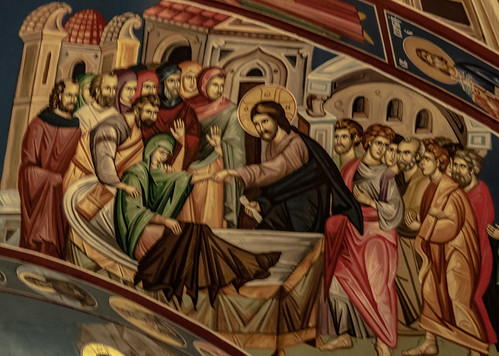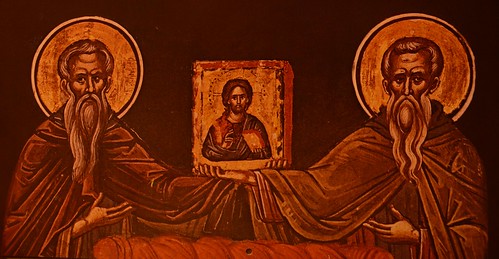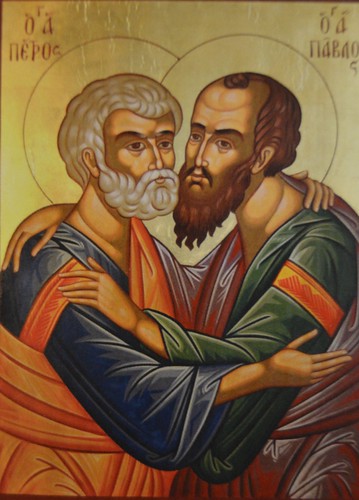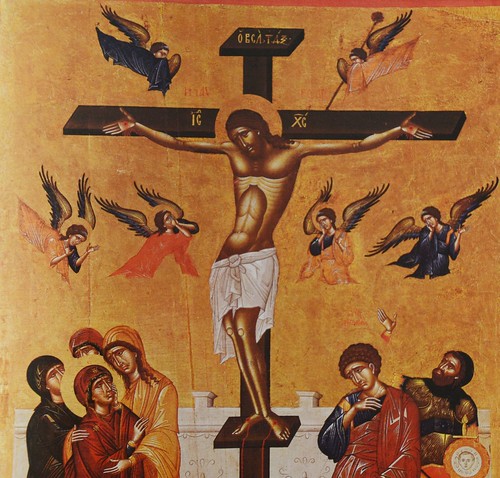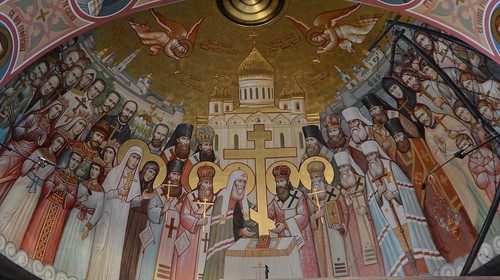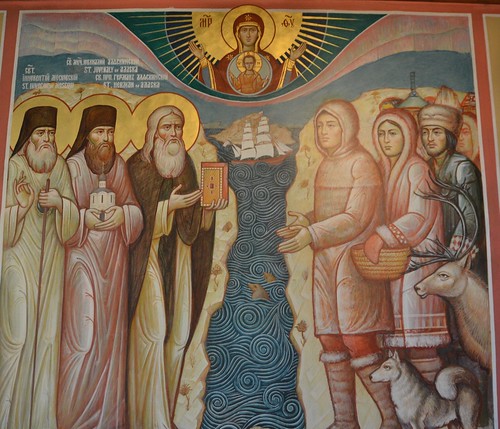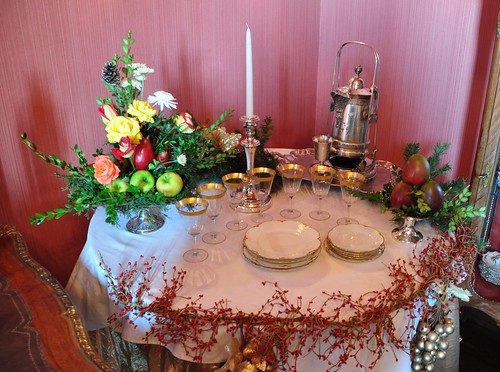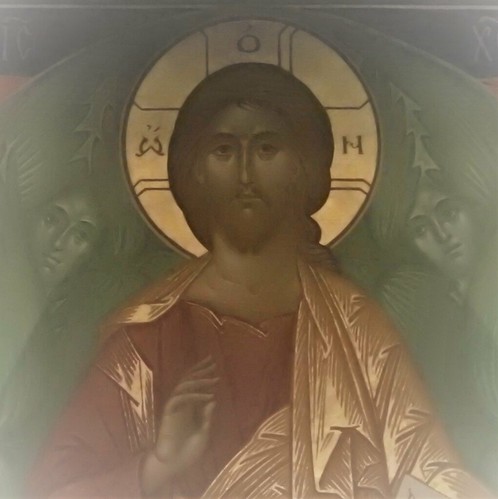Then the disciples came and said to Jesus, “Why do you speak to them in parables?” And he answered them, “To you it has been given to know the secrets of the kingdom of heaven, but to them it has not been given.” (Matthew 13:10-11)
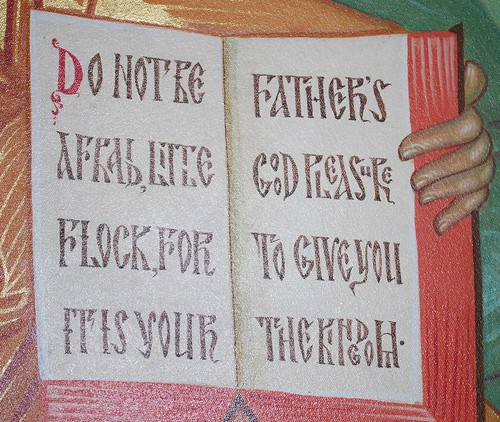
Luke 12:32
It can be hard for us to feel excitement about the Gospel and the Kingdom of Heaven, for we hear about it all the time in church, and it loses its newness and attraction to us. Year after year we listen to the same Gospel lessons and they come to sound so familiar, so ordinary, that we forget how totally unexpected, how original, how startling and exciting was the message of St. John the Forerunner and Jesus Christ and His apostles : “The kingdom of Heaven is at hand, repent!”
To get some sense of the newness of the Gospel, let us consider the phrase “the Kingdom of Heaven.”
We’ve all heard that phrase in church and it seems like that is just common fare from the Bible. And yet, the phrase “Kingdom of Heaven” never occurs in the Old Testament. Not even one time. And how about the phrase “the Kingdom of God”? That occurs one time in the Old Testament, in the Wisdom of Solomon. A book Protestants don’t even have in their English bibles.
 So when the Evangelist Matthew has St. John the Forerunner and then Jesus proclaim, “Repent for the Kingdom of heaven is at hand” (Matthew 3:2, 4:7), the people were hearing a newly worded message for the first time. This Gospel belonged to the New Creation for it was new and renewing. It is no wonder that the apostles didn’t always understand Jesus. They would not have learned about the Kingdom of heaven growing up or in any scripture classes they took at their local synagogues. Jesus was proclaiming a new idea, something strange to their ears, to get their attention. What is more surprising is that the people don’t ask more often, “What’s the kingdom of heaven? We’ve never heard of it. What are you talking about?”
So when the Evangelist Matthew has St. John the Forerunner and then Jesus proclaim, “Repent for the Kingdom of heaven is at hand” (Matthew 3:2, 4:7), the people were hearing a newly worded message for the first time. This Gospel belonged to the New Creation for it was new and renewing. It is no wonder that the apostles didn’t always understand Jesus. They would not have learned about the Kingdom of heaven growing up or in any scripture classes they took at their local synagogues. Jesus was proclaiming a new idea, something strange to their ears, to get their attention. What is more surprising is that the people don’t ask more often, “What’s the kingdom of heaven? We’ve never heard of it. What are you talking about?”
And do you think the phrase, “the kingdom of Heaven” permeates the New Testament? The Evangelists John, Luke and Mark and the Apostle Paul never use the phrase “the kingdom of Heaven”? Not once. None of them.
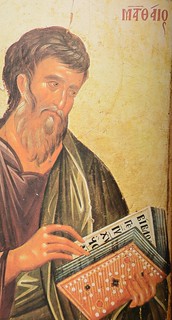 We hear the phrase Kingdom of Heaven and we think, O that’s what the bible is all about or that is what the New Testament constantly talks about. But no, there is only one author in the New Testament who uses the phrase “Kingdom of Heaven” and that is St. Matthew. He uses the phrase 31 times . But He is the only writer in the entire Bible to use that phrase. It seems as if he coined a phrase and an idea that he wanted us to hear. He made the Kingdom of Heaven a central idea to the Gospel. And he was quite the evangelist, for now we think that phrase occurs throughout the Bible from beginning to end.
We hear the phrase Kingdom of Heaven and we think, O that’s what the bible is all about or that is what the New Testament constantly talks about. But no, there is only one author in the New Testament who uses the phrase “Kingdom of Heaven” and that is St. Matthew. He uses the phrase 31 times . But He is the only writer in the entire Bible to use that phrase. It seems as if he coined a phrase and an idea that he wanted us to hear. He made the Kingdom of Heaven a central idea to the Gospel. And he was quite the evangelist, for now we think that phrase occurs throughout the Bible from beginning to end.
However, for us already the newness of the Gospel and the Kingdom of Heaven has worn off. We’ve heard about it so much that our senses are dulled. We are at risk to become like the people of the Gospel who turned against Jesus, as St. Paul says in the Acts of the Apostles:
The Holy Spirit was right in saying to your fathers through Isaiah the prophet: ‘Go to this people, and say, You shall indeed hear but never understand, and you shall indeed see but never perceive. For this people’s heart has grown dull, and their ears are heavy of hearing, and their eyes they have closed; lest they should perceive with their eyes, and hear with their ears, and understand with their heart, and turn for me to heal them.’ (Acts 28:25-27)
We Christians today need constant spiritual renewal to restore in our hearing and in our hearts just how new, exciting and unexpected the Kingdom of Heaven really is. It is light shining forth out of the darkness.
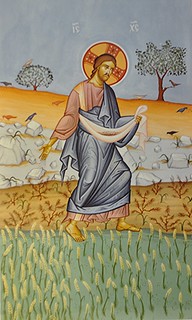 And in Matthew’s Gospel, Jesus used many images to try to convey to His followers what the Kingdom of Heaven is. He needed to do this because the constant was new, perhaps even foreign to those listening to Him who had heard the Torah taught as a book of Law. We are not unlike them, for we Orthodox every summer read through Matthew’s Gospel, learning about the Kingdom of Heaven – repeated 31 times for as many years as we follow the Orthodox lectionary. It becomes hard for us to hear it as new each year.
And in Matthew’s Gospel, Jesus used many images to try to convey to His followers what the Kingdom of Heaven is. He needed to do this because the constant was new, perhaps even foreign to those listening to Him who had heard the Torah taught as a book of Law. We are not unlike them, for we Orthodox every summer read through Matthew’s Gospel, learning about the Kingdom of Heaven – repeated 31 times for as many years as we follow the Orthodox lectionary. It becomes hard for us to hear it as new each year.
Jesus gives us parables to tell us what the Kingdom of Heaven is like. He doesn’t explain to us how the Kingdom of Heaven is like these common experiences, nor if the parable speaks only about the beginning of the Kingdom being like these things, nor if the Kingdom will be like these things but not like any other things, nor if the Kingdom will never change. Here are His images:
“The kingdom of heaven may be compared to a man who sowed good seed in his field; but while men were sleeping, his enemy came and sowed weeds among the wheat, and went away.
The kingdom of heaven is like a grain of mustard seed which a man took and sowed in his field;
“The kingdom of heaven is like leaven which a woman took and hid in three measures of flour, till it was all leavened
The kingdom of heaven is like treasure hidden in a field, which a man found and covered up; then in his joy he goes and sells all that he has and buys that field.
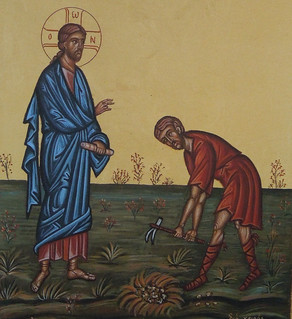
“Again, the kingdom of heaven is like a merchant in search of fine pearls, who, on finding one pearl of great value, went and sold all that he had and bought it. “
Again, the kingdom of heaven is like a net which was thrown into the sea and gathered fish of every kind; when it was full, men drew it ashore and sat down and sorted the good into vessels but threw away the bad (Matthew 13:24-52)
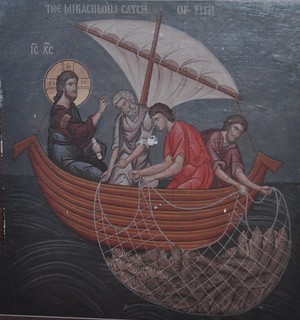
Therefore the kingdom of heaven may be compared to a king who wished to settle accounts with his servants. When he began the reckoning, one was brought to him who owed him ten thousand talents (Matthew 18:23-35)
For the kingdom of heaven is like a householder who went out early in the morning to hire laborers for his vineyard. After agreeing with the laborers for a denarius a day, he sent them into his vineyard. (Matthew 20:1-16)
The kingdom of heaven may be compared to a king who gave a marriage feast for his son, and sent his servants to call those who were invited to the marriage feast; but they would not come. (Matthew 22:1-14)
Then the kingdom of heaven shall be compared to ten maidens who took their lamps and went to meet the bridegroom. Five of them were foolish, and five were wise.

“For it will be as when a man going on a journey called his servants and entrusted to them his property; to one he gave five talents, to another two, to another one, to each according to his ability. Then he went away. (Matthew 25:1-30)
When we realize that His disciples and followers never learned about the Kingdom of God from the Torah or the Tanakh, we realize why Jesus spent so much time explaining ideas about this coming Kingdom.
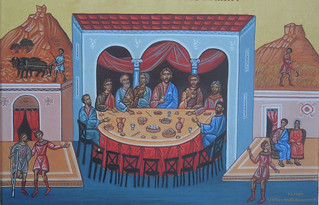
In the parable found in Matthew 22:1-14, Jesus compares the Kingdom of Heaven to a king who prepared a wedding banquet for his son, but the invited guests refuse to come to the feast. Ultimately, the king commands his servants to bring in what amounts to the dregs of society to fill his banquet hall. Yet, when the king comes into the banquet hall he sees one man who had no wedding garment.
While the parable is about this unexpected and surprising Kingdom of Heaven, it has one more surprise in the lesson itself – the wedding garment.
Many homilists assume Jesus must have been referring to a practice that was known in his day so they assume it is true, but most scholars agree that there is absolutely no known practice of a wedding garment in Israel. Jesus was telling a parable and may have made up this detail about the wedding garment for the purpose of His parable. It helps us understand Jesus is using story, not historical fact, to teach us about the Kingdom. [Another clue that the parable is pure story and not presenting something factual – just think about the time frame it would have taken. The food is all prepared and sitting on the banquet tables. The king sends out his servants initially to bring in the guests, they are rejected, he sends more servants, they are abused and killed. Send the arm to burn down the city. Then send more servants to gather all the undesireable – from the thoroughfares, yet the city was burned down! – then the king finally gets to go to the banquet and the food is still hot on the tables. All in a few hours apparently. This could only happen in fiction.]

My “practical” thinking says it is not likely that people provided a wedding garment to everyone who came to a wedding. The cost would be exorbitant! Where would people store such garments? The poor (most of the population) would not have money to purchase their own wedding garments, nor would anyone have had room to store such a garment to be worn only at weddings.
What is possible is that St. Matthew himself wanted us to experience what the disciples experienced when they first heard the parables from Jesus – the parables had details in them which are unexpected and which are not obvious at all and make us say, “What?!?!?”. They require us to think about them, study them and interpret them. Maybe St. Matthew wanted us to experience this newness of the Gospel, so that our ears wouldn’t be dull but rather we would hear about this Kingdom of Heaven, and not sure of what it is , would want – or more likely, need – to learn more and to seek it out. The parables are inviting us to seek, not giving us pat answers.
So maybe Jesus or St. Matthew wanted us to think about these mythical or mystical wedding garments – to unstop our ears and to open our hearts and minds to the Gospel.

Maybe because the king had brought in the dregs of the earth to his banquet he provided a wedding garment – not customarily, but especially because everyone was poor and in need. So the man without the special garment may have refused the special garment or for whatever reason intentionally bypassed accepting the garment and certainly that rejection of the king’s hospitality was noted by the king was already aggravated by his illustrious, invited guests who had jilted him and killed his servants.
In the early church we note how frequently and with great comfort and confidence the Fathers noted any biblical passage may have more than one meaning and the listeners had to decide for themselves which meaning applied to them.
During Holy Week when we pray the Bridegroom Matins, we sing these words:
Your bridal chamber I see adorned, O my Savior, and I have no wedding garment that I may enter. O Giver of Light, enlighten the vesture of my soul, and save me.
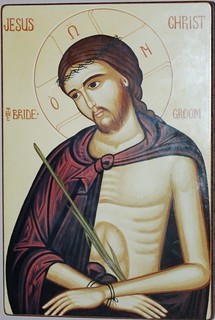 There we make use of the wedding garment imagery. We use it to remind ourselves that we are not worthy of this blessed Kingdom of Heaven – we can’t enter it by our own goodness. We realize our own nakedness – even if we are splendidly clothed in posh frocks! Our chosen clothes from this world, no matter how expensive and tailored, leave us completely undressed when we try to enter the banquet hall without the God-given festal garments. We are in need of God’s mercy and grace. And we ask Christ to “enlighten the vesture of my soul“. We want Christ the Giver of Light to change the garment of our soul into light so that we can enter Paradise. We are speaking of a spiritual garment here, not a physical one. “Here indeed we groan, and long to put on our heavenly dwelling, so that by putting it on we may not be found naked. For while we are still in this tent, we sigh with anxiety; not that we would be unclothed, but that we would be further clothed, so that what is mortal may be swallowed up by life. He who has prepared us for this very thing is God, who has given us the Spirit as a guarantee.” (2 Corinthians 5:2)
There we make use of the wedding garment imagery. We use it to remind ourselves that we are not worthy of this blessed Kingdom of Heaven – we can’t enter it by our own goodness. We realize our own nakedness – even if we are splendidly clothed in posh frocks! Our chosen clothes from this world, no matter how expensive and tailored, leave us completely undressed when we try to enter the banquet hall without the God-given festal garments. We are in need of God’s mercy and grace. And we ask Christ to “enlighten the vesture of my soul“. We want Christ the Giver of Light to change the garment of our soul into light so that we can enter Paradise. We are speaking of a spiritual garment here, not a physical one. “Here indeed we groan, and long to put on our heavenly dwelling, so that by putting it on we may not be found naked. For while we are still in this tent, we sigh with anxiety; not that we would be unclothed, but that we would be further clothed, so that what is mortal may be swallowed up by life. He who has prepared us for this very thing is God, who has given us the Spirit as a guarantee.” (2 Corinthians 5:2)
Maybe Jesus in His parable reference to the wedding garment reminds us that when we are baptized, we put on a new garment, a white baptismal garment which has a particular symbolic meaning. For it was the belief of many Jews and Christians in the ancient world that Adam and Eve in the Garden of Eden were given beautiful garments to wear by God. Garments made of light. They all believed that when Adam and Eve sinned, these beautiful garments of light were taken away from them. Some also believed that Satan then covered us with dark robes of sinful thinking to help prevent us from seeing the image of God in each other, so that we would forget about the Kingdom Heaven and live only for this world. Something in which Satan seems to have succeeded quite well. Satan’s garments blind us, while baptism gives us a new garment which enlightens and illumines us.
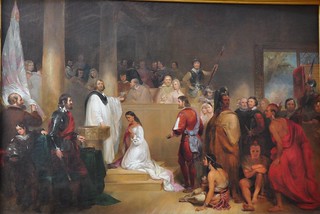
Perhaps the wedding garment parable reminds us of that special garment which God gives to us – which we receive at baptism. A spiritual garment, not a physical one. The white baptismal garment is but a symbol of the reality. The prayers of baptismal service say we will have to give account to God for the baptismal garment we received, and how we treated it and what we did with it:
That he/she may preserve his/her baptismal garment and the earnest of the Spirit pure and undefiled unto the Day of Christ our God, let us pray to the Lord.
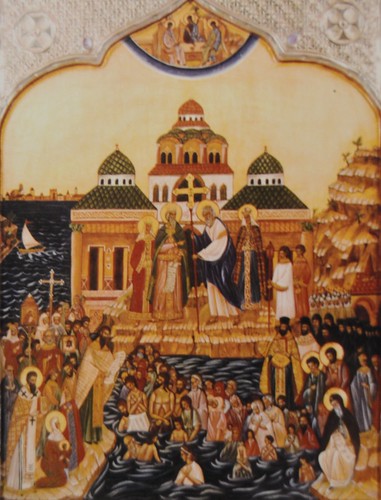
So if you don’t know where your baptismal garment is – I’m not talking about the physical clothes, but the spiritual garment, or if you don’t even remember this garment at all, maybe it is time to look for it so that you can enter the Kingdom of Heaven and remain there for all eternity as the King’s invited guest. You have to start thinking about the garment that adorns your soul, not the garments you buy at the mall. “Let not yours be the outward adorning with braiding of hair, decoration of gold, and wearing of fine clothing, but let it be the hidden person of the heart with the imperishable jewel of a gentle and quiet spirit, which in God’s sight is very precious.” (1 Peter 3:3-4) What St. Peter advised women in his day, becomes Christian advice for all in the modern age – don’t be so concerned with appearance, rather pay attention to the substance of your inner self.





